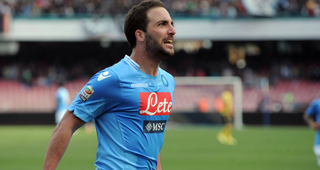You can understand Spain in terms of Barcelona and Real Madrid. This approach has its problems—namely, the perpetuation of the myth that only two clubs in La Liga have ever been good, or ever mattered—but if you were to study that rivalry and nothing else, you would learn a great deal about Spanish soccer and the culture it swims in, certainly more than you would if you immersed yourself in the rich-but-less-consequential histories of the Derbi Sevillano or the Derby de la Communitat.
The same holds true for the rest of Europe’s biggest leagues: the elite clubs define a nation, to a large extent. Italy has Juventus and, on a slightly lower pedestal, Inter and Milan; Germany has Bayern Munich; Portugal has Porto and Benfica and sometimes Sporting. Until relatively recently, England was Manchester United, Liverpool, and everyone else, but oil money at Chelsea and Manchester City has scrambled a hierarchy that was consistent for decades.
Of course, these broad strokes obscure as much as they illustrate. Atlético Madrid, Athletic Bilbao and Valencia have all had their moments atop La Liga. Arsenal have gone through spells where they positively scorched the rest of England. Dortmund, Monchengladbach, Roma and Napoli have a sizable handful of titles and a bunch of second- and third-place finishes among them. This is what lends Europe any intrigue at all: history marks the likes of Madrid and Bayern as favorites every season, but once in a while, some giddy anarchist underdog comes along and socks history in its snout.
Then order is restored the following summer. Death and taxes and a Juve Scudetto, etc.
Napoli finished second in Serie A last season and they weren’t particularly hot on Juventus’s heels. They finished nine points shy of the Turin club and were much more concerned toward the back of the season with beating out Roma for automatic Champions League qualification than chasing their literally and figuratively far-off northern neighbors.
But if Napoli had one thing over Juventus, it was Gonzalo Higuaín. The six-foot striker played the season of his life, scoring 36 goals in 35 Serie A games and netting 42 times across all competitions. Higuaín, throughout his career, has been something like the Napoli of forwards: usually quite good, rarely great. He platooned with Karim Benzema at Real Madrid for a few years before Madrid realized Benzema was better. He has been exceedingly solid in Naples, but he’s a frustrating player in that he’s talented enough to make fans demand a little bit more than he can deliver. With an extra half-yard of pace and a smidgen more composure in the penalty area, he could be one the world’s best at what he does. Instead, mild disappointment follows him around.
Or it did until last year, when Higuaín put up numbers so gaudy that everything insufficient about him melted away. The bad news for Napoli fans, who thrilled for nine months at the Argentine’s self-actualization, is that Higuaín might have played his way out of the south of Italy. Atleti are sniffing around, but they probably lack the necessary funds. Arsenal are in pursuit, and they do have the money, but Arsène Wenger tends toward self-thwarting frugality. Maybe Chelsea will dive into the hunt if Diego Costa leaves; maybe PSG will want to pair him with Edinson Cavani. We do know—more than we know most things during this time of year, when the air is two parts hydrogen, one part rumor—that Juventus are interested. Having returned Álvaro Morata to Real Madrid, they’re in the market for an elite poacher-type, and if they could weaken Napoli in the process of acquiring one...
The point here is not that the move is inevitable, but that Napoli’s reluctance to sell Higuaín won’t factor much into whether he skips town or stays put. If Juve want the player and the player wants out, he’s going to move. Napoli can stall and protest and point to Higuaín’s $104 million release clause, but the most they can do is drive up the price. Napoli’s best-case scenario, should Higuaín tell them he’s dead-set on Juve, is that they lose a player they’re unlikely to be able to replace and receive a handsome sum that they can then reinvest in bargain vets and young talent. In the end, Juve get better, Napoli get immediately worse, and there’s not much to be done about it.
This sort of thing happens to Dortmund nearly every offseason. They lose one or two of their best players to Bayern Munich and their path to a Bundesliga title grows ever more winding and treacherous. Porto and Benfica crush their rivals before they even become threatening; they’re regularly in the business of buying Portugal’s premier 17-year-olds out from under the country’s lesser lights. Real Madrid and Atleti have an informal non-aggression pact that mostly keeps the former out of the latter’s backyard, but Barcelona stole Arda Turan away from the Calderón last summer and both Madrid and Barça are currently tussling over Valencia’s André Gomes. Talent matriculates up the table in every league, reinforcing the existing hegemonies and guaranteeing that, over the long run, the continent’s Napolis will never compete with its Juves.
This is the way things are, and whether it’s as they should be depends on where you’re standing, but this part, specifically—where the titans bleed their domestic competition—can hardly be enjoyable for anyone. It’s capitalism’s grim endpoint: the strong consolidating power and the rest hanging on for dear life.



